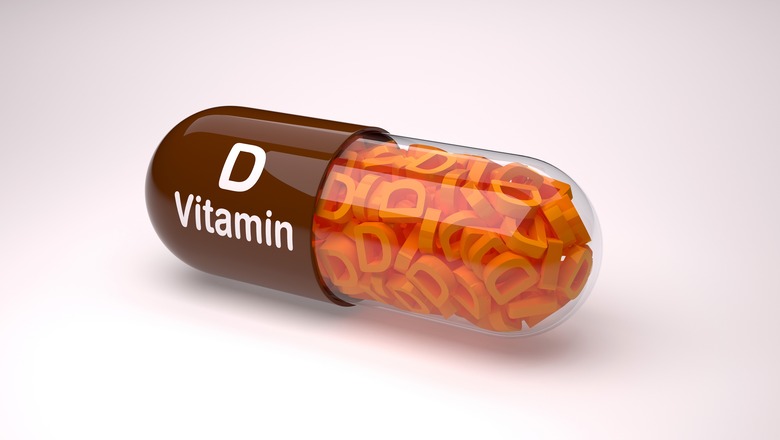No, Seriously, You Really Need To Be Taking Vitamin D
Most Americans obtain sufficient quantities of vitamins and minerals from their diets alone, but despite this fact, public health advocates are especially concerned about a deficiency in one particular nutrient — vitamin D. Data from the Centers for Disease Control and Prevention shows that, among Medicare beneficiaries, the number of blood tests for vitamin D increased 83-fold between 2000 and 2010. Vitamin D can't be manufactured by the body; it must be derived from either the sunlight or a limited number of foods such as mackerel, salmon, or portobello mushrooms. Some doctors are worried that adult populations — especially those living in northern climates absent of significant sunlight — are at an increased risk of vitamin D deficiency.
For 10 Foods That Are Full of Vitamin D, Click Here.
Vitamin D helps the body absorb calcium and phosphorus and is essential for building and maintaining bone strength (a major concern for aging adults), but new research has also linked the vitamin to pain-related conditions such as arthritis, chronic back pain, and menstrual cramps. A review published in the Journal of Endocrinology found that increased vitamin D supplementation paired with high quality sleep could improve the effectiveness of pain management treatments. Dr. Monica Levy Anderson, the study's lead researcher, noted that there was a significant relationship between sleep, vitamin D, and hyperalgesia — a heightened sensitivity to pain. Anderson and her colleagues concluded that supplementation of vitamin D may have a therapeutic role in the prevention and treatment of chronic pain conditions.
Another study based on a meta-analysis of 10,007 diabetic individuals from around the world found a possible link between vitamin D deficiency and diabetic retinopathy (swollen blood vessels in the eye that impair vision and cause blindness). Diabetic retinopathy is a major cause of blindness around the world and is the leading cause for blindness in the United States for individuals between the ages of 20 and 64. The study concluded that the use of "vitamin D supplements as a protective mechanism against the development and progression of diabetic retinopathy warrants further investigation."
But a recent New York Times article cast some doubts on the miraculous benefits of vitamin D. A flurry of research papers published nearly two decades ago connected vitamin D with a number of maladies ranging from mental illness to cancer risk, but most of these either used a small sample size or didn't produce statistically significant results.
The National Institutes of Health, a branch of the U.S. Department of Health and Human Services, found that adverse effects can occur with too high an intake of vitamin D, so don't start popping vitamin D supplements before speaking with a doctor. Getting tested for vitamin D levels might be unnecessary, but it doesn't hurt either, and there remains strong evidence that vitamin D supplements can be useful in many circumstances.
